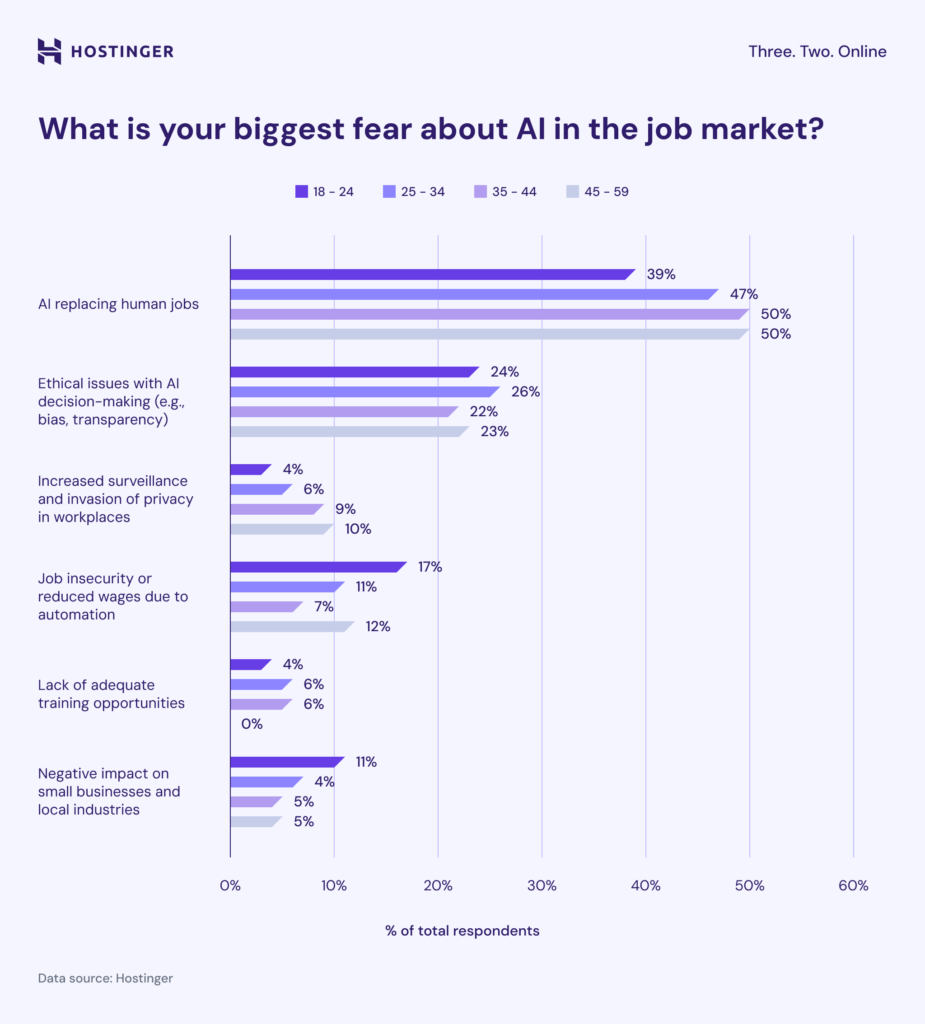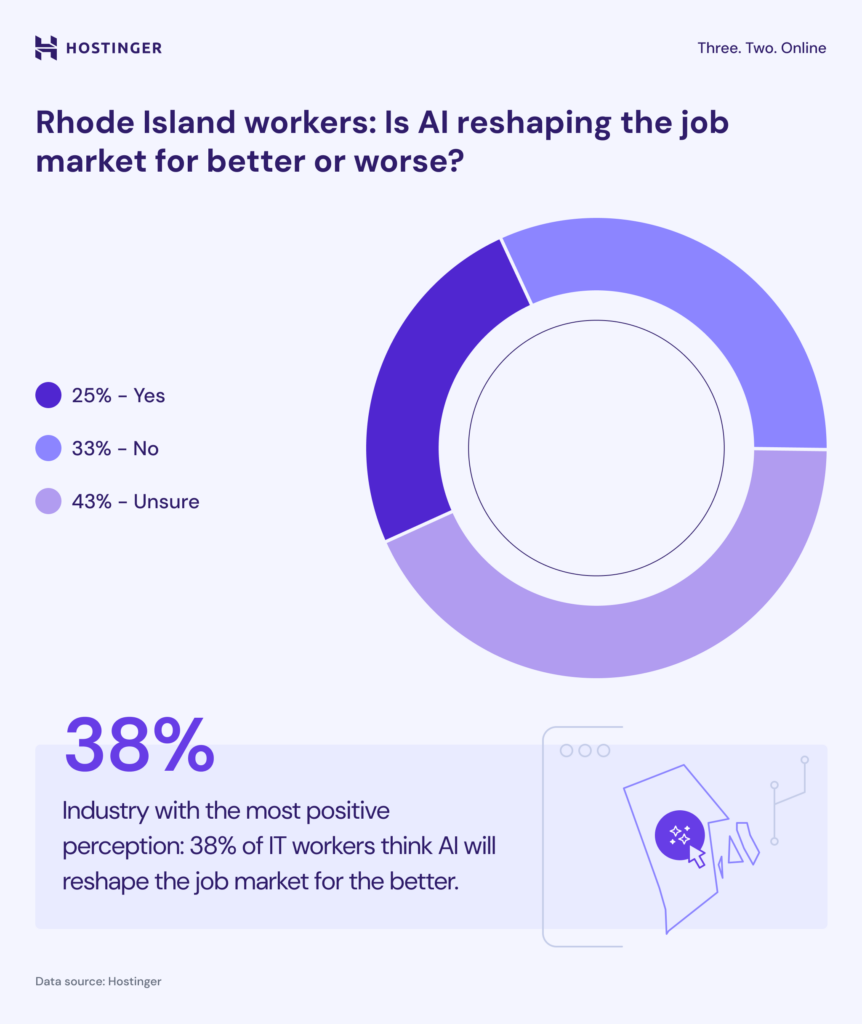Synthetic intelligence (AI) instruments have been a part of some staff’ every day routines for some time now. How does AI affect the job market, in response to staff in Rhode Island, the smallest state in the USA? Hostinger recognized key outcomes from a survey centered on staff’ AI-related fears, and their views on how AI will have an effect on abilities, data, development, regulation, and the job market usually.
Clear concern: AI changing you at work

The first concern revealed on this survey amongst Rhode Island staff is AI changing human jobs. 48% of individuals fear AI expertise will change people in sure roles. The survey reveals a higher concern amongst older staff in comparison with youthful ones, in that fifty% of staff aged 35-54 view this as a big concern. Nevertheless, the numbers are considerably lowered for Gen Zs (39%) and younger adults round 25 to 34 (47%).
Respondents on this New England state are additionally generally involved about moral points and lowered wages, components that ranked second and third, respectively.
Rhode Island staff see worth in understanding AI
In Rhode Island, on common, six out of 10 staff agree that they need to be taught new AI instruments and applied sciences. In training and IT providers, that quantity exceeds 75%, indicating a majority imagine in upgrading their AI abilities.
A number of industries not intrinsically associated to tech and digital transformation categorical doubt concerning the necessity of including AI abilities to resumes. 47% or much less of healthcare, authorities, and public administration staff say they may think about studying extra about it.
Solely 3% declare to be specialists on AI
Dozens of AI instruments can be found on-line, and since OpenAI’s ChatGPT launched in 2022, AI platform use has elevated every day. 21% of staff within the Ocean State imagine they know extra about synthetic intelligence than the typical particular person, but solely 3% think about themselves specialists within the subject. The remaining 76% of respondents declare they know the fundamentals of AI.
Braveness with AI: fears, new abilities, and the present second
Whereas Hostinger’s examine examined the responses of staff whose main concern is job loss as a result of synthetic intelligence, information signifies that respondents fearing job loss as a result of AI are actively adapting within the following methods:
- 54% stated they must be taught new abilities due to AI.
- 81% asserted they know the fundamentals, and 17% expressed that they know greater than a mean particular person about AI.
Employees with this concern are primarily concentrated in:
- Healthcare (18%)
- Non-profits/social providers (14%)
- Training (13%)
- Retail (12%)
“Synthetic intelligence adjustments quickly. We should keep in mind and belief our means to adapt to new instruments. The consumer base for AI instruments continues to increase, and it’s our duty to be taught and have interaction within the dialogue,” states Eiviltas Paraščiakas from Hostinger.
Is AI a constructive or unfavourable agent for jobs?
Opinions on AI’s impression on employment had been additionally examined. Just one out of 5 respondents believes AI will generate extra jobs than it replaces in any state trade. This was constant throughout all age teams and most trade backgrounds. An exception is manufacturing staff, 50% of whom expressed a extra optimistic view concerning AI’s impression on future job creation.
53% of staff imagine AI is advancing too quickly

Rhode Island staff view AI’s reshaping of the job market with uncertainty. 53% of respondents imagine synthetic intelligence is advancing too quickly for staff to adapt.
Moreover, when requested concerning the constructive or unfavourable impacts of AI on employment, solely 25% stated they imagine this new expertise will create higher prospects for the job market, whereas 33% predicted a unfavourable impression. The most important group, with 43%, expressed uncertainty.
Total, it’s believed that AI will considerably impression jobs, and that staff’ adaptability will considerably form the way forward for most industries. In intervals of uncertainty, folks’s motivation and notion could decelerate or pace up the tempo of progress.
Rhode Island’s enterprise and financial surroundings clearly exemplifies tendencies in white-collar states. Almost 60% of the Ocean State’s civilian-employed inhabitants is employed in white-collar industries. Based on the US Census Bureau, Rhode Island’s employment charge is 61%, and the median family earnings is $84,900 per yr. Because the smallest state within the nation, Rhode Island’s employment charge and median family earnings are barely above the nationwide averages.
Methodology
- The examine gathered 300 responses in the course of the first two months of 2025 and is a part of the Decoding Developments collection of quick research led by Hostinger.
- Check out the solutions right here.










